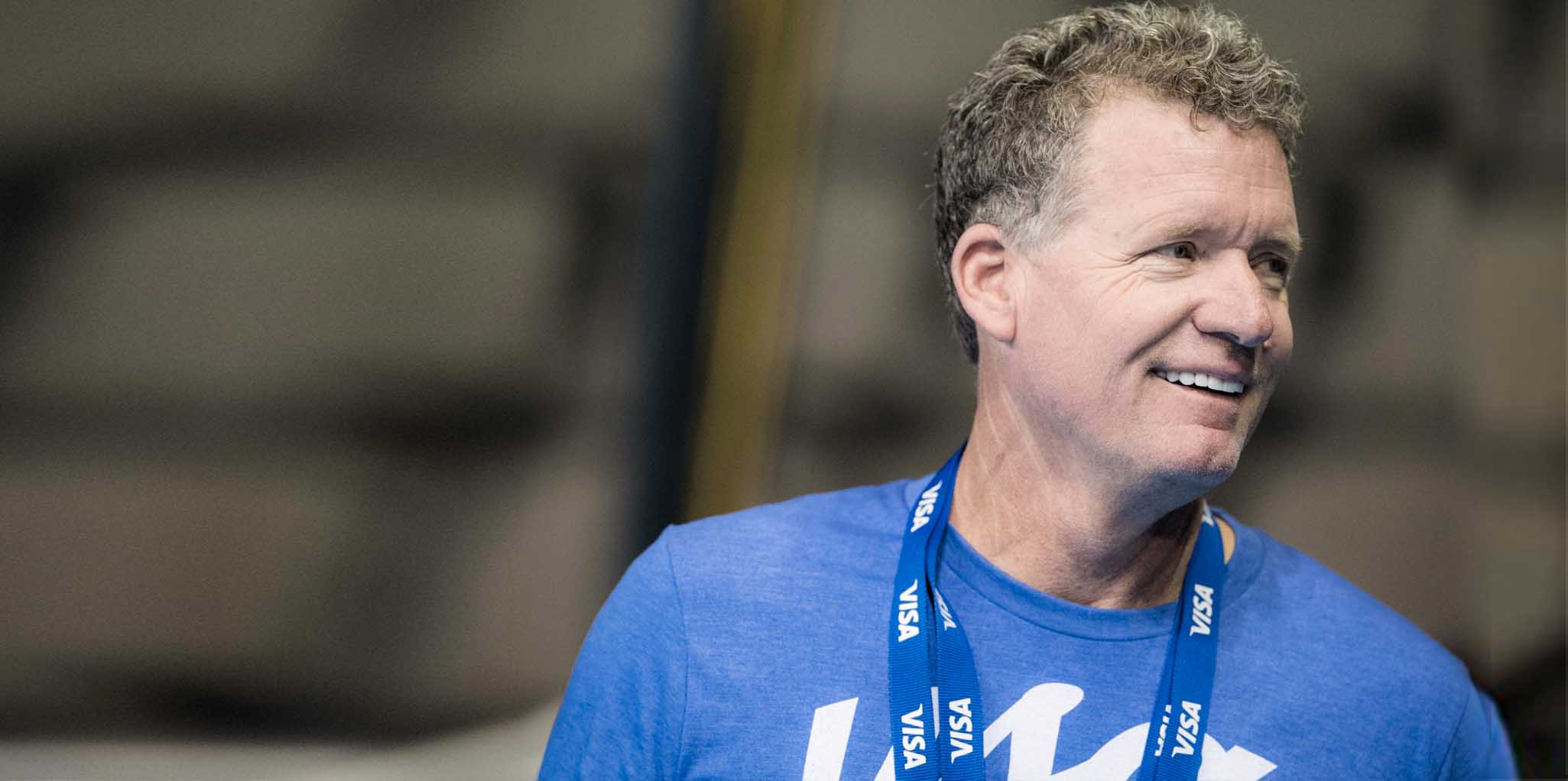David Marsh is one of the most respected and successful swimming coaches worldwide. The 60-year-old American coached around 50 Olympians from various nations and is currently head coach of the "Team Elite". Olympic gold medalists Ryan Lochte and Anthony Ervin, among others, trust his guidance. At the Olympic Games, Marsh was part of Team USA coaching for four times, in Rio he was even named head coach of the women’s swimming team. We talked to the top coach about US swimmers always managing to be on the top of the podium at the Olympics, and what it means to be a swimming coach today.
The US athletes have been dominating the world of swimming for years. They won 33 medals at the Rio Olympics, eight of which came from your swimmers. What is "Team USA"doing differently compared to other nations?
There are certainly several factors. The atmosphere in the team is always exceptional. Also, I think that our Olympic qualifying competition, the trials, is really intense and it’s difficult to qualify there. The athletes are almost relieved at the Olympics, because there the pressure is often not as big. When you ask sports scientists, it does not really make sense to qualify a few weeks before the season's main event. (Trials are usually 4 to 5 weeks before the Olympics / world championships, editor's note.) They would say that's crazy. It’s is a terrible setting for a training cycle but it seems to work for Team USA. Many athletes are already used to this through the college system. First, there are the regional championships, a few weeks later the national championships. Most of the athletes are getting ready for both, so they get used to this rhythm.
You mentioned the team atmosphere. What makes it so special?
There is no doubt that this particular chemistry, developed during the pre-camps, is a big part of the success. The team comes together and the team captains, chosen by the athletes, also have an important role. They lead the team with a mix of self-confidence and modesty that transcends the whole team. You cannot train something like that.
An important point is that the whole team is focused on the job that lies ahead. There are no distractions. Certain things serve to lighten the mood but that always comes out of the team itself and not from the outside. In other national teams you can tell that external influences often play a role. There are officials and sponsors who intervene and negative headlines of the media are established in the athletes' minds.
"The atmosphere around an athlete preparing for his Olympic games is very sensitive. It is different than being at national championships or even at world championships."
And that distracts the swimmers from swimming.
The atmosphere around an athlete preparing for his Olympic games is very sensitive. It is different than being at national championships or even at world championships. You have prepared for the Olympics for four years. For us Americans, the Olympics are more important than any other event, even more than world championships. That's why we keep the swimmers focused and allow only a few outside influences.
You are known not to be a big fan of endless training sessions, but prefer short, intense training sets. Why is that?
This is my personal training style but not every coach trains like that. And that's okay too. There have to be different approaches. Personally, I did achieve the best results with my athletes this way. I also like to make the training interesting and bring in some variety. When we got some new swimmers from Japan on the team, such as Olympic and World Championship medalist Ryosuke Irie, I immediately asked, what exercises they did in training. Some sounded cool and were then integrated directly into our training.
"As a coach, you have to know which training style the individual athletes are responding to. Some athletes will only ask for guidance into the right direction. Others need a tougher hand."
You’re speaking from decades of experience on the pool deck. In your opinion, what is the most important role for a coach in competitive sports?
There are two important factors: On the one hand, the coach has to find out what the best technique is for the individual athlete in order to get the most out of their natural conditions, such as leverage and height. A great example is Marco Koch. He is the ideal breaststroker for me. But that does not happen overnight and does not fit every athlete. Also, as a coach, you have to know which training style the individual athletes are responding to. Some athletes will only ask for guidance into the right direction. Others need a tougher hand and need to be pushed out of their comfort zone over and over again. A good coach trains different swimmers in different ways. And that's true at every level.
A version of this interview has first been published in swimsportMagazine edition Spring 2017.

